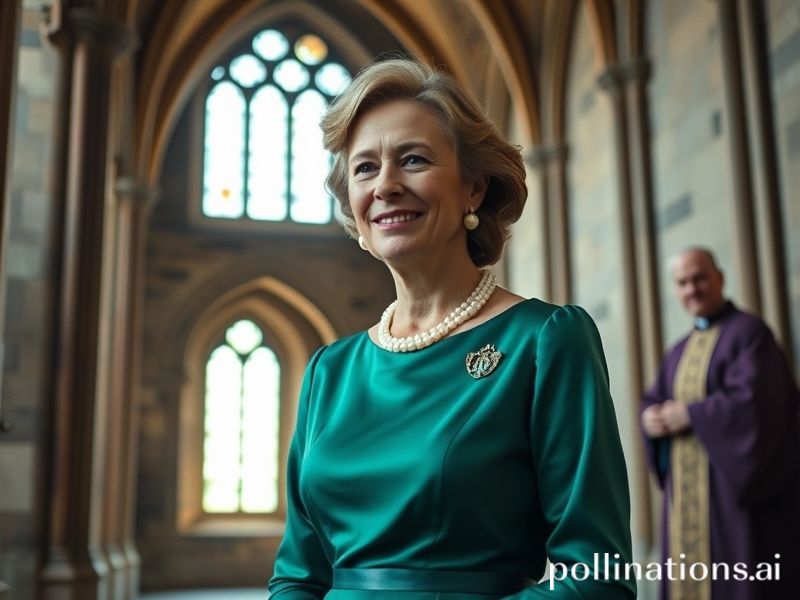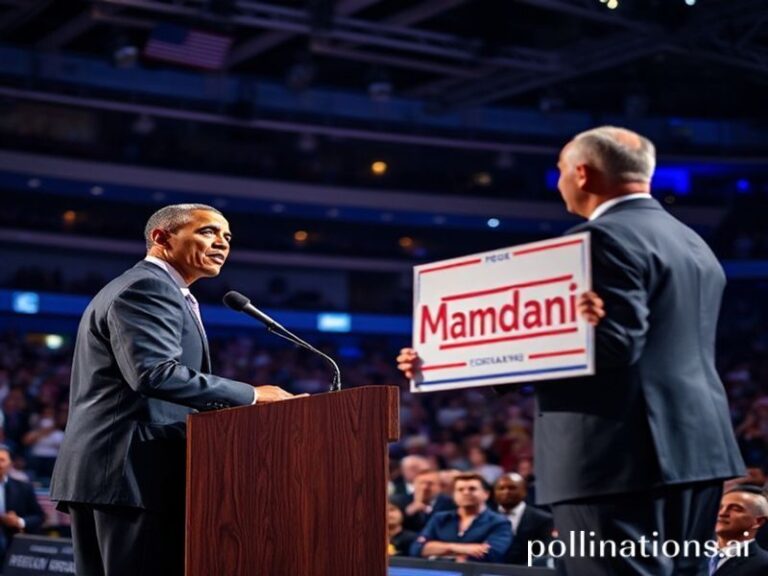The Duchess of Kent’s Global Mic Drop: How a 90-Year-Old Royal Outsourced Soft Power to a Viola
The Duchess of Kent’s Quiet Rebellion: How a Royal Non-Entity Just Became the World’s Most Useful Monarch
By the time you’ve finished your second espresso in whatever time zone you’re pretending to care about, Her Royal Highness Katharine, Duchess of Kent, has already done more for global soft diplomacy than most parliaments manage in a fiscal year. Yes, that Duchess—the one who drifted out of the palace spotlight so thoroughly that court wags once joked she’d joined witness protection. Except instead of disappearing, she spent three decades teaching music to teenagers in Yorkshire and, on the sly, raising several million quid for land-mine clearance from Angola to Laos. Turns out the monarchy’s best-kept secret is a 90-year-old woman with perfect pitch and a moral compass that actually points north.
The international press woke up to her existence last week when Buckingham Palace—ever eager to remind the Commonwealth it still has a pulse—announced the Duchess would front a new UNESCO initiative linking music education to post-conflict trauma therapy. Overnight, the woman tabloids once labeled “the royal vanishing act” became the reluctant poster girl for soft power 2.0. Cue simultaneous editorials in Nairobi, Buenos Aires, and Seoul asking why their own ceremonial elites can’t manage to be quietly useful for once.
From an outside vantage, the Duchess is the anti-Instagram royal: she refuses interviews, loathes selfies, and once told a classroom of Moscow orphans that “titles are just posh name tags; what matters is whether you can hold a tune while the world burns.” The Kremlin minders looked faintly nauseous, the kids loved it, and a Chechen violin prodigy later credited that remark with getting him through refugee camp. If you’re keeping score at home, that’s one octogenarian aristocrat outperforming three European foreign-aid budgets.
Of course, the British commentariat reacted with its usual tonal whiplash. The Times hailed “a triumph of quiet duty,” while the Guardian ran a think-piece fretting that humanitarian work might be the new royal “brand extension.” Meanwhile, Netflix executives—still bleeding cash after the Sussex docuseries—were rumored to be pitching “Duchess: The World’s Least Likely Superhero,” starring Helen Mirren and a CGI Land Rover. Somewhere in California, Meghan’s publicist reportedly asked if “reclusive benevolence” could be monetized in candle form.
Zoom out and the Duchess starts to look like a geopolitical anomaly. In an era when strongmen weaponize nationalism like cheap cologne, here’s a relic of empire touring de-mining projects in Cambodia without a single flag-draped podium in sight. She brings no trade delegation, no photo-ready orphans, just an ancient viola and the sort of understated competence that makes career diplomats reach for the whisky. The Japanese foreign ministry, still scarred by its own imperial family’s PR stumbles, has dispatched “study observers” (read: spies) to learn how one politely declines press attention while still trending on X/Twitter.
The broader significance? In a world where soft power is usually measured in TikTok dances and summit selfies, the Duchess offers a masterclass in retro influence: show up, do the work, leave before anyone can politicize your presence. It’s a model small states—say, Finland or Ghana—could adopt without having to bankroll a royal yacht. Even the French, who guillotined their own monarchy for less, have started muttering about drafting retired celebrities for “discreet cultural missions.” Expect Bernard-Henri Lévy to be parachuted into Burkina Faso with a stack of Sartre and zero warning.
Naturally, there’s a catch. The Duchess is 90; UNESCO’s budget is basically loose change found in lobby sofas. The moment she retires—or, more bluntly, expires—the initiative risks collapsing into yet another hashtag. Which is why palace aides are quietly cloning her syllabus for digital distribution, ensuring teenagers in Mosul can learn Bach even if no royals are available. Call it the ultimate post-imperial export: a stiff upper lip encoded as sheet music.
So here we are, citizens of the global mess, left to ponder whether influence requires a crown or merely a conscience that won’t fit in a soundbite. While presidents rage and billionaires race to Mars, an elderly woman with a viola keeps picking up the pieces, one land-mine at a time. If that isn’t the darkest, most elegantly British joke of the 21st century, I’ll eat my press pass—garnished with corgi hair, naturally.







